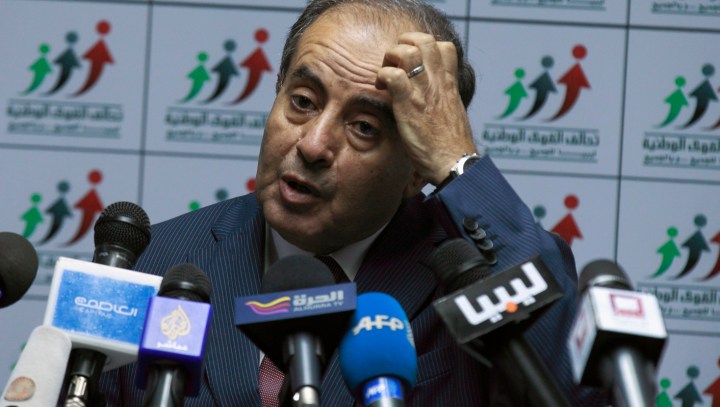Africa
Libya’s elections: a cause for cautious optimism

Defying the doom and gloom predictions, election day in Libya went smoothly. So smoothly that the usually cynical SIMON ALLISON is beginning to wonder if the country’s many problems are really as insurmountable as they look, and whether there is genuine hope for the future.
It’s easy to get despondent about the new Libya. It is less than a year after the vicious revolution which toppled the outrageous Gaddafi and his one-man-band government, and already the rebels’ noble ideals have been tempered by the messy reality of power and politics.
The list of problems is long. In Tripoli, the capital, the interim government rules by decree, or tries to; getting itself heard in the din of competing factions and militias has proved tricky and sometimes impossible. Libya’s leadership has so little real power that they still have not been able to wrestle the country’s most prominent prisoner, Gaddafi’s son Saif al-Islam, from the firm grasp of the Zintan militia which holds him. They can’t even guarantee the safety of public buildings: the airport, the prime minister’s office and various oil installations have all been subjected to armed takeovers by militia groups looking to guarantee their share of the spoils.
In the eastern port of Benghazi, the heart of the revolution, dissatisfaction simmers from groups who feel excluded by the new political dispensation, and unrewarded for the immense sacrifices they made. There are mutterings from a small but worrying separatist movement: why, some ask themselves, should all the power remain in Tripoli when Tripoli always benefited from Gaddafi and contributed little to the fight to remove him?
In Kufra, a city in the deep south, separated from the rest of urban Libya by the immensity of the Sahara desert, old tribal animosities have flared into modern violence, killing scores as the rest of the government looks on, too insecure to intervene effectively.
Yet in the midst of all these troubles – of which the examples above are but a snapshot – there was an election – Libya’s first in 47 years. For the first time, the people would choose their own leaders. Two hundred seats in a new national assembly were up for grabs; the national assembly then set to appoint a new prime minister and cabinet.
It sounds like a promising moment; self-determination is one of the things Libyans fought for, tired of being dictated to. But elections can go horribly wrong – think Kenya in 2008, or Cote D’Ivoire last year. And Libya has enough men with guns and axes to grind that violence could not be ruled out. Newspaper headlines were filled with dire warnings: “Libyans risk violence to vote”; “First free elections amid chaos and fear”; “Is Libya the next Somalia?”
And then a magical thing happened. The elections went well. Resoundingly well. “Reports from across Libya highlighted an enormous, infectious enthusiasm for the vote which belied the sensationalist press reporting and commentary about a collapsing, violent Libya on the brink of chaos,” wrote Marc Lynch on Foreign Policy. “Voter registration and turnout were remarkably high, and there have been few reports of either violence or attempted fraud… July 7 was only one day in Libya. But it was a good day.”
It was a good day especially for Mahmoud Jibril, the interim prime minister during the revolution whose umbrella party, the National Forces Alliance – encompassing a number of smaller parties with similar policies – took a strong early lead in the initial results. His victory – presuming it is confirmed by later results – will go down well in western capitals, who are comfortable dealing with the US-educated leader and highly relieved that the Islamist parties (especially Libya’s Muslim Brotherhood faction) fared poorly. Promisingly, Jibril has called for a “grand coalition” of all Libya’s party to come together under one banner and work together as part of government; a necessary move in healing the country’s many and bitter divisions.
A good day for Libya indeed. But perhaps we should have seen it coming. Juan Cole, a highly respected Middle East analyst, posted a scathing assessment of the media’s coverage of the elections and Libya in general on his Informed Comment blog. “Most Western reporting on Libya is coloured by what is in my view a combination of extreme pessimism and sensationalism,” he wrote (http://www.juancole.com/2012/07/top-ten-surprises-on-libyas-election-day.html). “It has been suggested that because most reporters don’t stay there for that long, many don’t have a sense of proportion. It is frustrating to have faction-fighting in distant Kufra in the far south colour our image of the whole country. Tripoli, a major city of over 2.2 million (think Houston), is not like little distant Kufra, population 60,000.”
That’s not to say that Libya doesn’t have its fair share of problems – more than its fair share, in fact. But perhaps, contrary to the tone of much of the recent coverage of the country, these problems are not insurmountable. Certainly, the elections this weekend are a hugely encouraging sign that Libya might be in better shape than anybody thought. DM
Read more:
- Life Without Gaddafi, Finding My Voice And My Vote on the Huffington Post
- Libya’s all-important post-election steps in the Washington Post
Photo: Mahmoud Jibril, head of the National Forces Alliance, speaks during a news conference at his headquarters in Tripoli July 8, 2012. REUTERS/Zohra Bensemra.




















 Become an Insider
Become an Insider